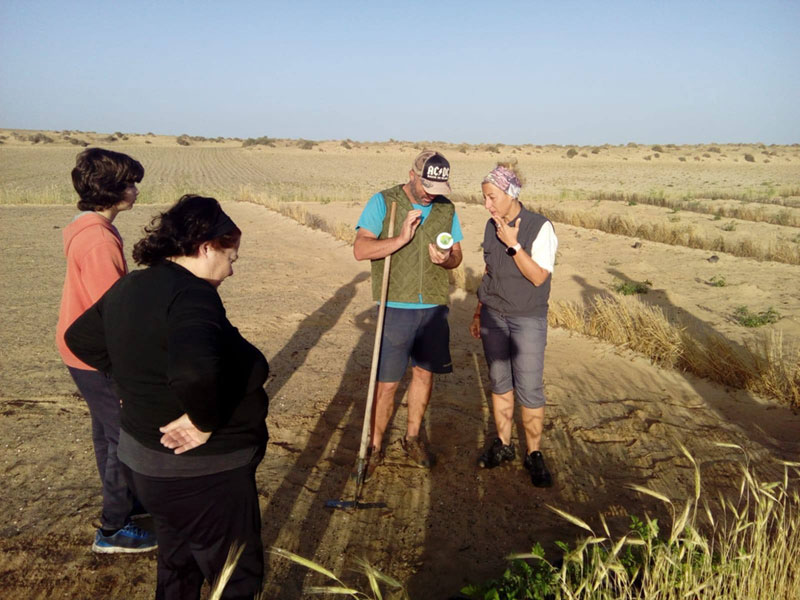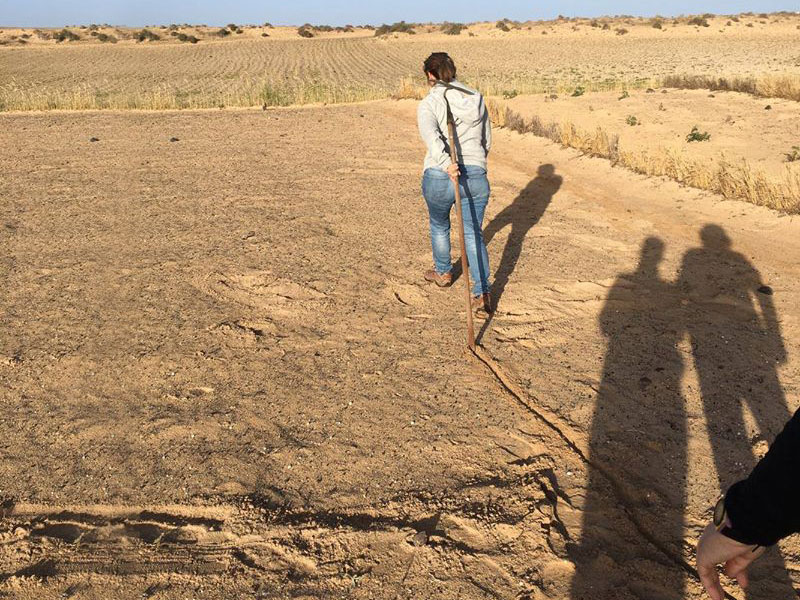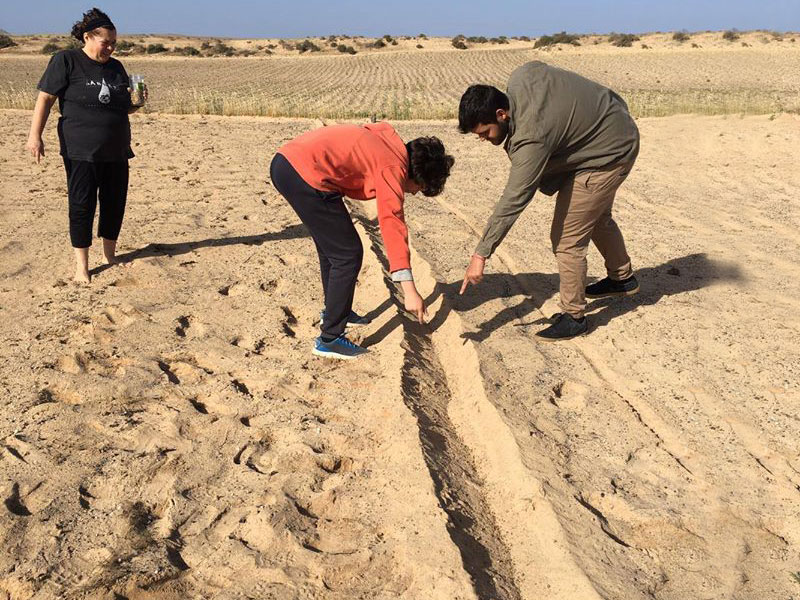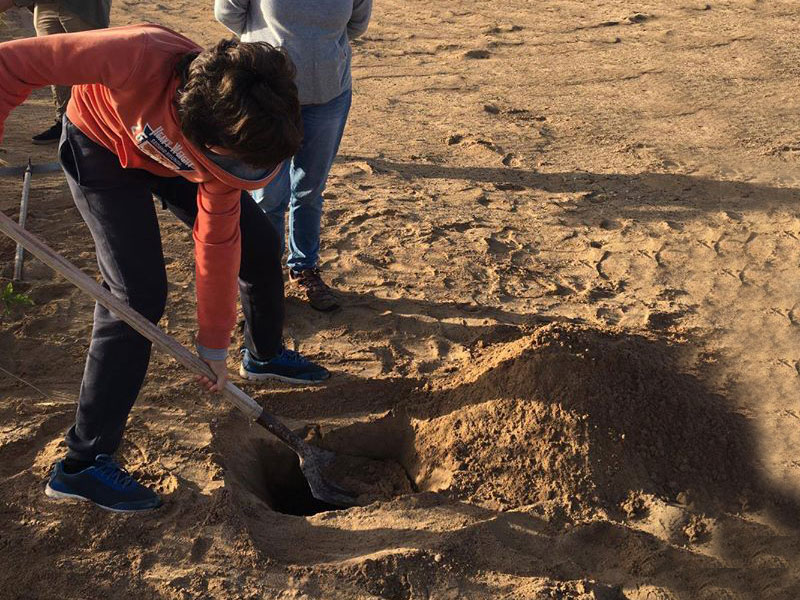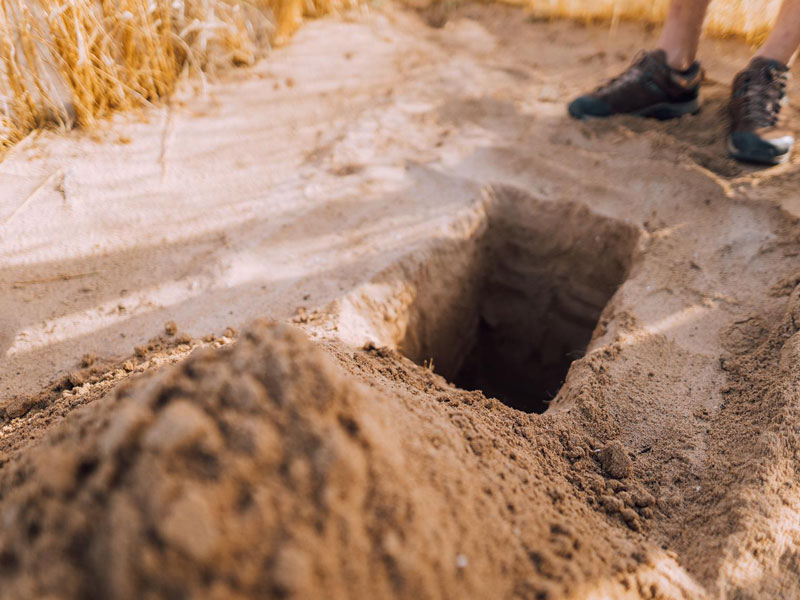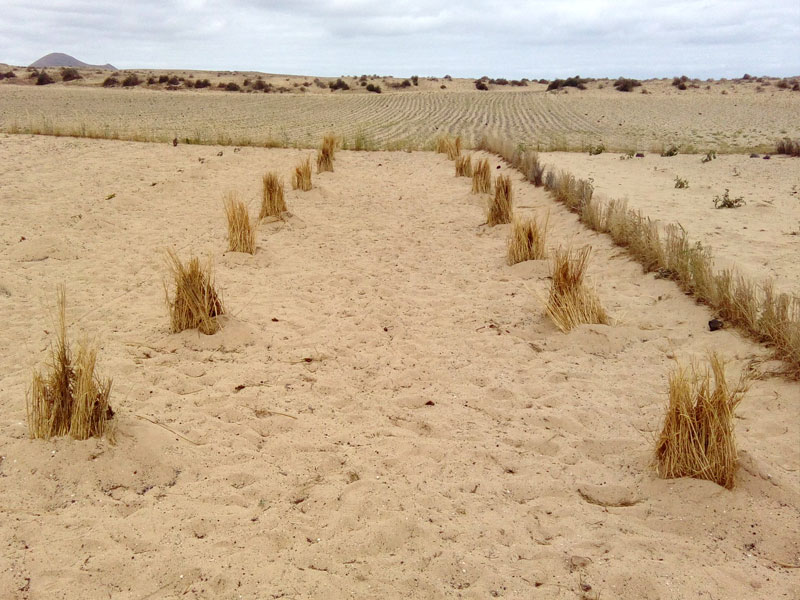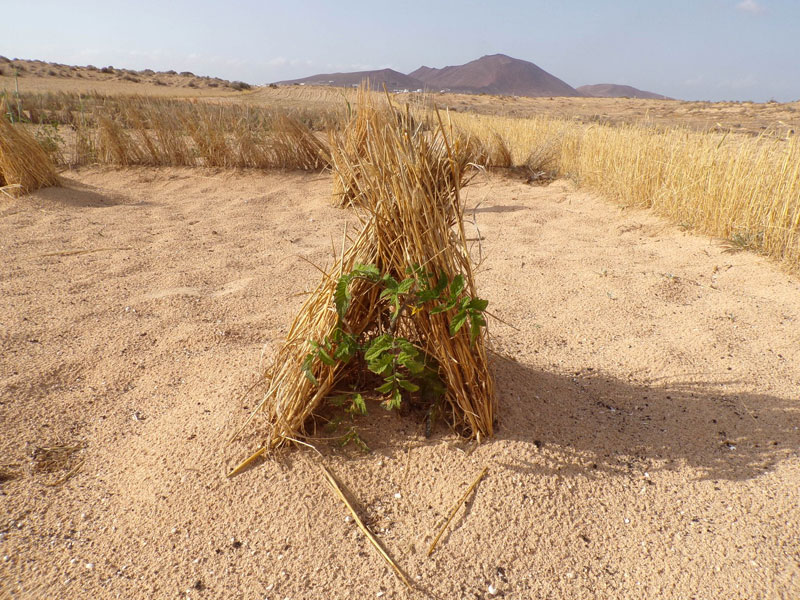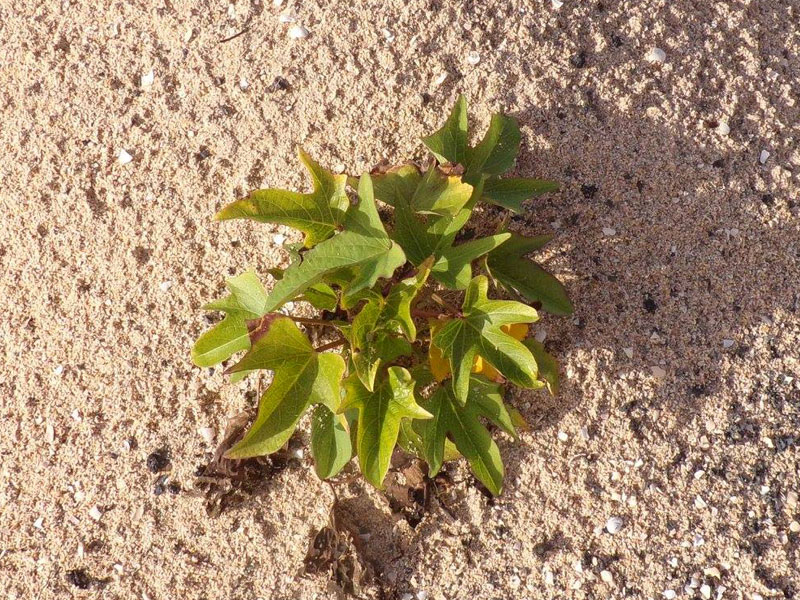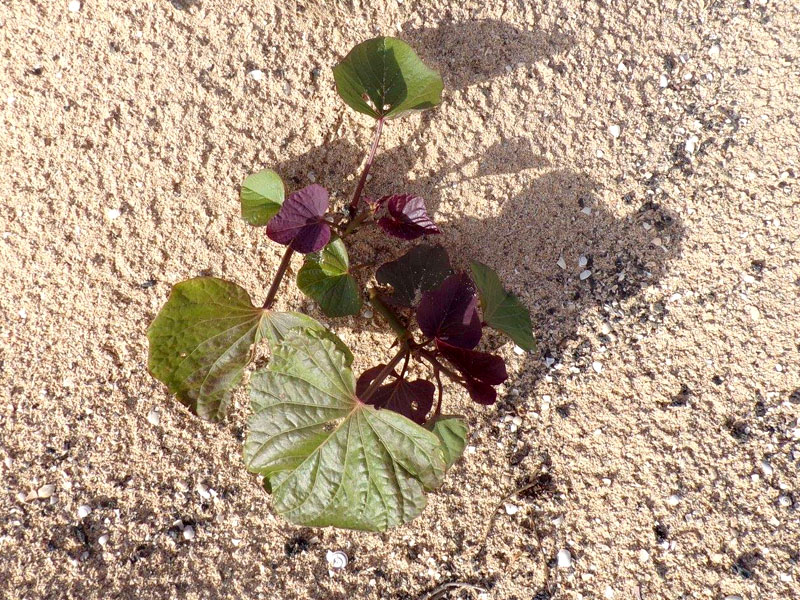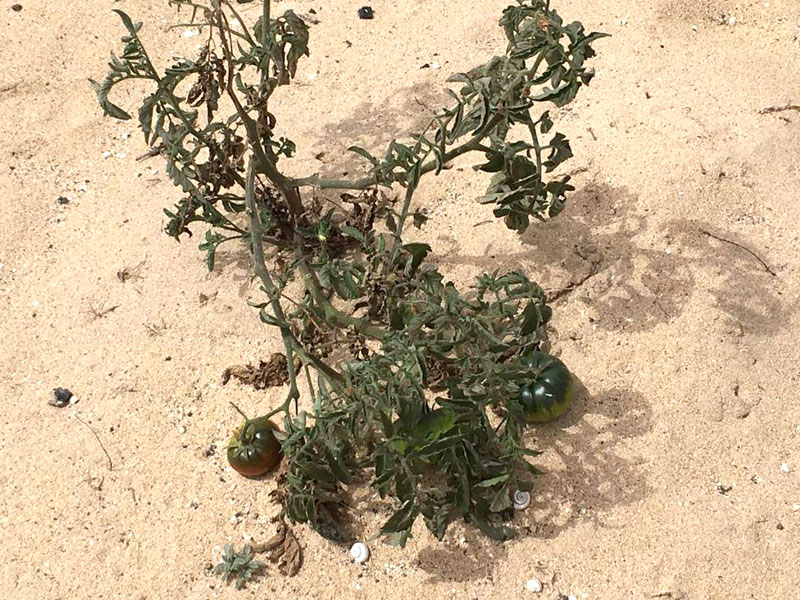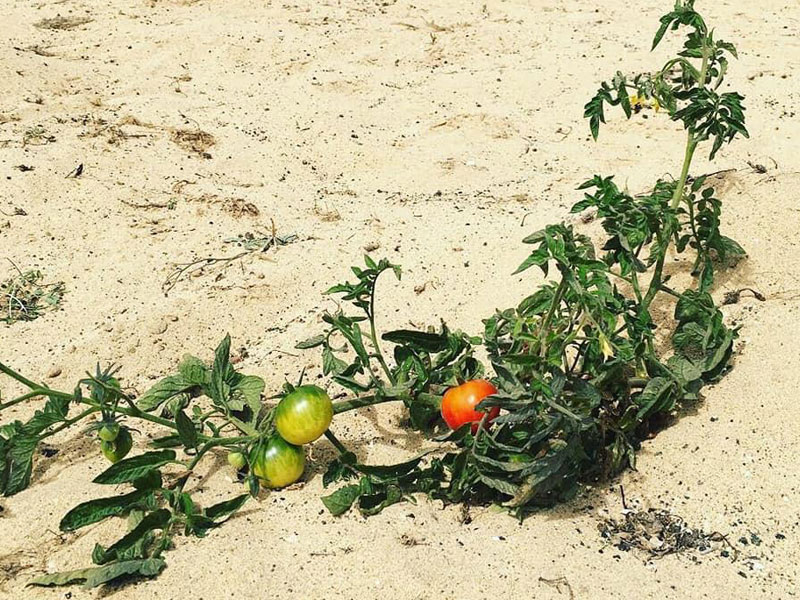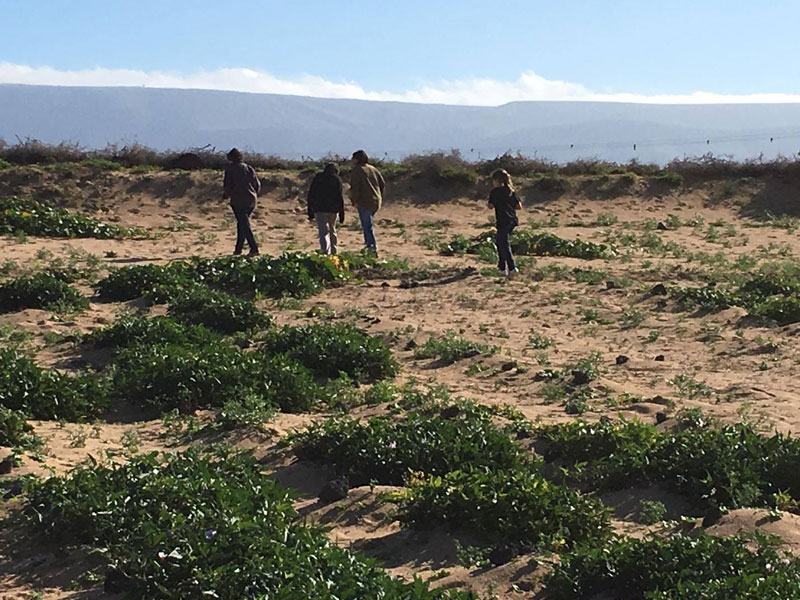conservation
Helping sustainable farmersEl Jable Lanzarote
Farming in the desert
The sand in El Jable is organic, which makes the plane fertile. The only reason it looks like a desert most of the year is because it doesn´t get any water. However, since ancient times, people figured out a very original and peculiar system how to grow high quality crops without using any artificial irrigation. Sweet potatoes, tomatoes, squash, watermelons, onions and other produce from El Jable is legendary over all Canary Islands. The traditional method of farming is so original, that The Food and Agriculture Organisation of the United Nations wants to include El Jable as one of the world´s Globally Important Agricultural Heritage Systems spaces.
Organic traditional farming is completely compatible with wildlife conservation in El Jable. However, it is hard work and little money for the farmers and these gradually abandon their fields for more efficient activities. This is why we committed to help those who respect and practice sustainable cohabitation in El Jable, where people and wildlife can share the space.
Farming
PLANTING FOR THE bustards
The land he lets us use is as a frame to his field. The intention is to find out whether our “buffer plantation” helps to protect his crops from bird foraging. In our non-commercial plantation “for the birds” we prefer to use varieties that used to be planted in El Jable traditionally but are gradually disappearing, such as cereals, sweet potatoes, watermelons, squash, tomatoes and others.
Camera traps or foot prints give us evidence of our secret visitors and their tastes.
When we do field trips for school children in El Jable, part of the tour is a visit to the Planting for the bustards project. We hire the farmer to explain to them how the sand farming works and to teach them to plant.
The children enjoy it because they are planting “for the birds” but at the same time, they learn about their heritage, about why organic farming is important for the health of the people, the wildlife and the environment and last but not least, the farmer has a possibility of an extra income.
The “buffer plantation” is now one of
our Land Trust contracts as well.

Farming
DELIGHTS FROM THE DESERT
We were having a brainstorm about how to make it so the farmers don´t see the birds as their enemies. Partridges and bustards peck on the sweet potato leaves, when watermelons are ripe, ravens sample not one, but all of them! But sometimes it also happens that if it rains after a dry period, the sweet potatoes grow too fast and crack, leaving them not eligible for the market.
The idea that we came up are the “Delights from the Desert”: We found a gourmet chef, a small food manufacture with all the sanitary permits link to Paletería and a design group specialising in food packaging. The chef created a delicious sweet potato paste, that can be served with cheeses, pancakes, ice cream or just as a spread on a bread. The design team created a beautiful packaging for the product, with a leaflet inside about the project.
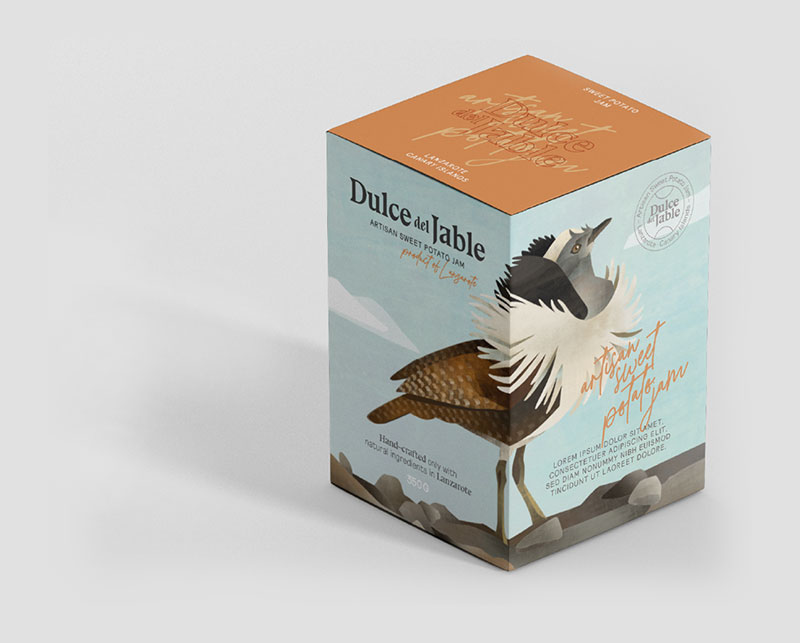
Farmers bring their fresh but not perfect produce to the manufacture by the kilo. In the manufacture they just cut out the damaged part and prepare the sweet paste according to the recipe.
They package it in jars and boxes that we provide. Our association has a stand in the Teguise market but we have an agreement with different specialised stores who are enthusiastic about the idea.
The intention is to sell it way above the commercial price of the sweet potato paste as the customer needs to be aware that his or hers purchase is a contribution to a conservation project.
After the sale, we pay the manufacture and the packaging costs and we divide the benefit 25% for us and 75% for the farmers that contributed with their produce. This way the farmer can get for their “imperfect” produce more than if he were selling the sweet potatoes per kilo.
So far the design and recipe was created only for the sweet potato paste but same can be applied to watermelons, squash, tomatoes, etc.
The “Delights of the Desert” are still in the phase of a project, waiting for financing.

